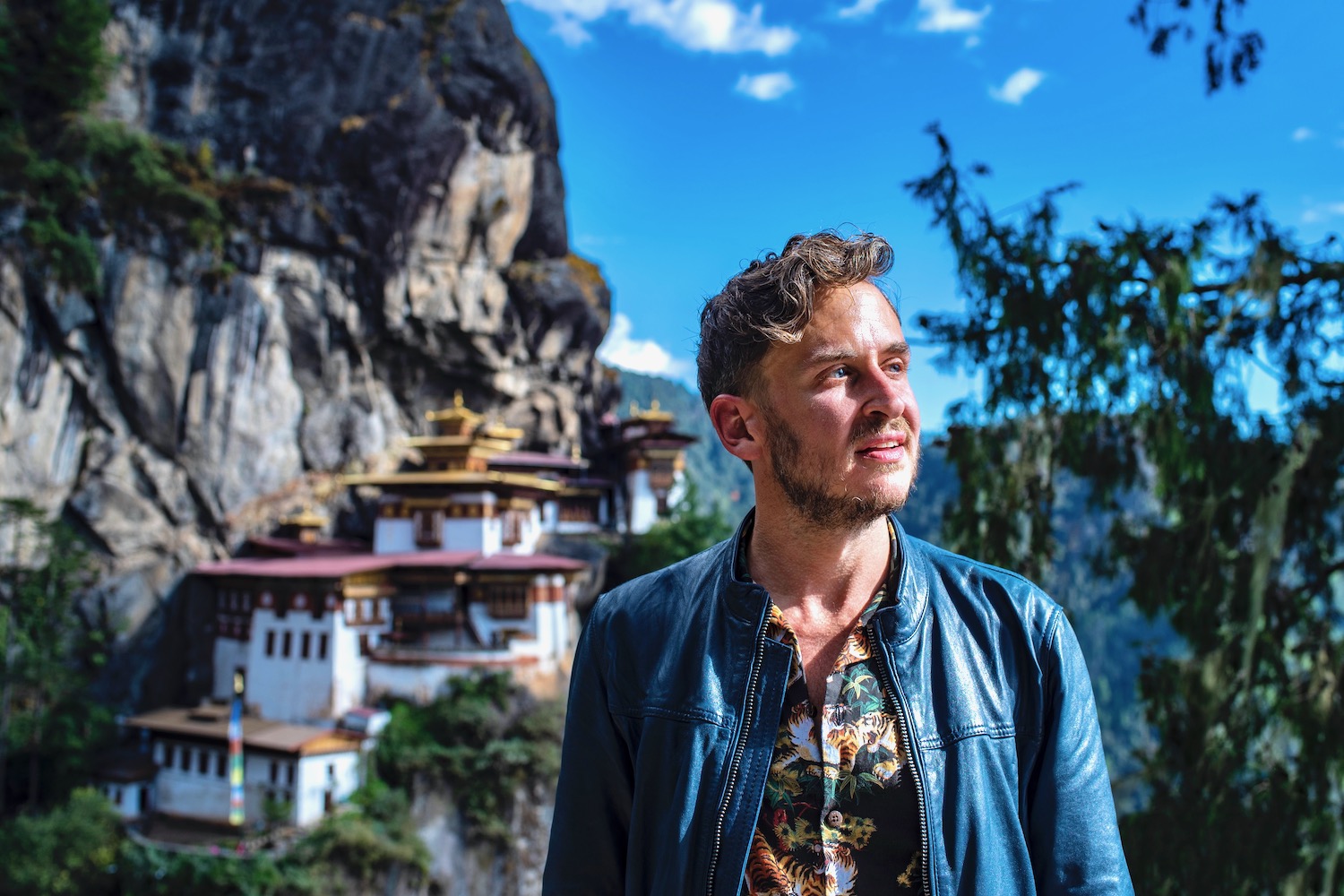Growing up in the St. Louis suburbs, I used to look at every plane taking off and wish that I was on it. It didn’t matter where it was going—it just mattered that it was going.
But now at nearly 40, living in the city, my perspective has changed. Walking my sister’s dog through our leafy neighborhood one Saturday afternoon in early September, I felt almost relieved that I was not abroad the Southwest jet soaring overhead (and not just because it was probably headed somewhere tacky).
“No,” I said aloud, speaking to Parker—for once—in a sober, human voice instead of a hysterical dog-talking one. “I’m glad to be here on the ground with you.”
It was the perfect late summer day: Hot enough not to need a jacket, but cool enough that I didn’t have to worry about the pup burning his paws. The trees around us seemed to concur—ginkgoes, sycamore and maples, as I recall.
They were certainly dark and dry after months of heat and sunlight, but weren’t showing even the slightest hint of the yellow, orange and red to come, or the certain death that came after that.
I felt a similar un-ease within myself as I imagined my own near future, aboard planes travel much farther than a Southwest 737 could possibly fly.
It would be a long sojourn—six weeks; the sort of trip I promised myself I would never take again—spent primarily in the Himalaya, with the hermit Kingdom of Bhutan my first destination after a week of convalescence in Bangkok (because where else?).
As I strolled with Parker toward his favorite field, whose grass had never grown back in after a brutal July burnout, I could practically quantum-tunnel to the sleeplessness I knew would define my time in the Thai capital, where as always I would wonder whether I had made a mistake in coming at all.
“This is what compromise looks like,” I transmitted to my future self. “If you want to have the best of both worlds, you can only have part of each.”
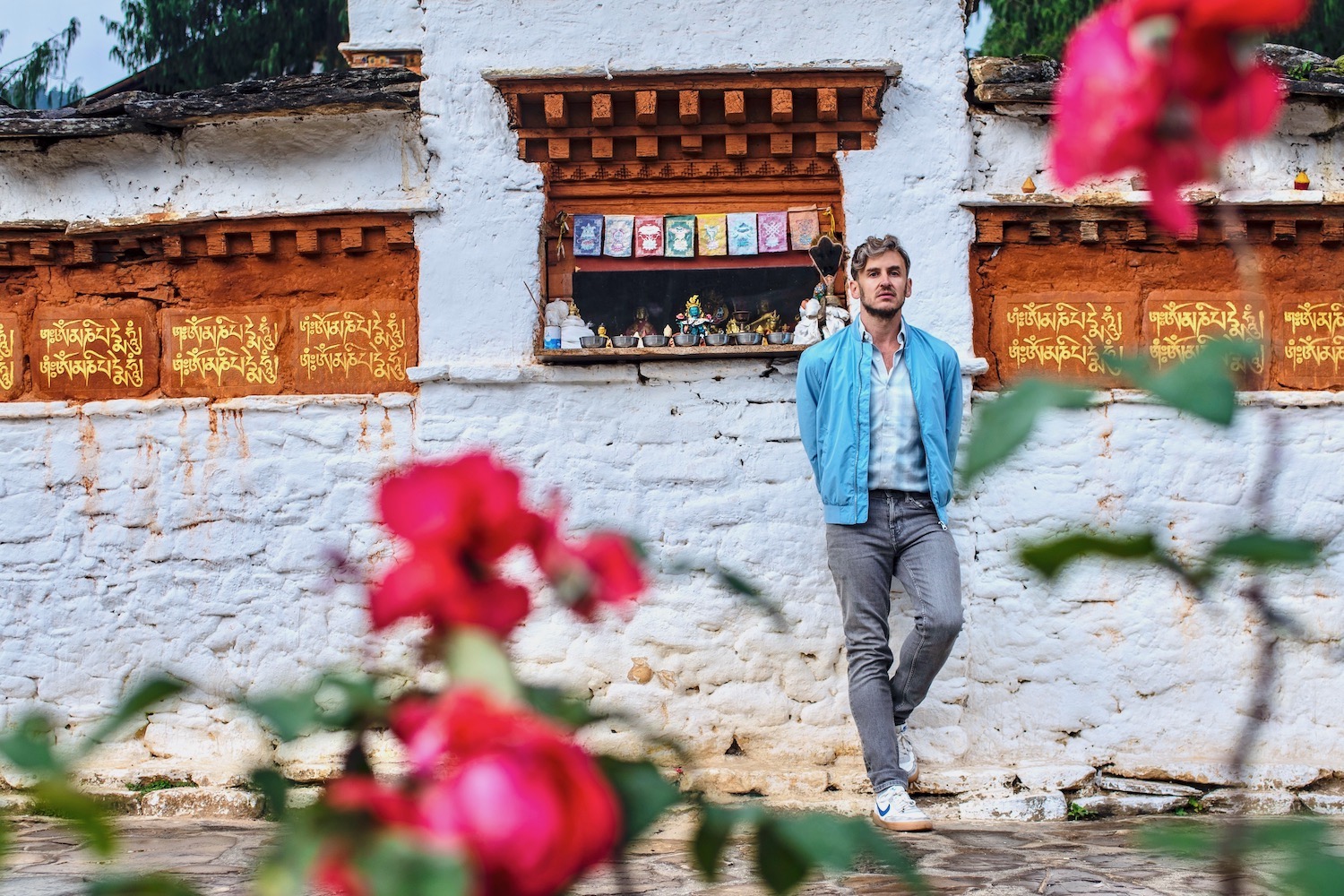
I did end up spending my first six nights in Bangkok sleepless. I was surprised, then, when I not only passed out easily before the sun went down on #7, but also woke effortlessly at 1:30 the next morning and made it to Suvarnabhumi with more than enough time to spare for my flight to Paro.
Which is not to say I’d fully made peace with my journey—that was from the truth.
In fact, I looked everywhere for signs that I shouldn’t go. My hotel in Thimphu ghosted me after confirming they’d provide me an airport transfer. Perhaps that doomed my nascent trip enough to make a substitute one to familiar Japan preferable by comparison?
Even after I resolved that quandry, an unseasonable downpour watching a rehearsal of the Thai Royal Barge Procession soaked my passport to the point of being warped. Maybe it wasn’t valid for travel, leaving me with no choice but to cancel?
Or maybe Bhutan simply wasn’t worth visiting? After all, only rich old white people seemed to go, most of them terrified to visit Nepal, which according to many accounts I’d read was the far more interesting country. Hadn’t I simply wanted to visit Bhutan because of the SDF elimination, and for the sake of completion?
But board the DrukAir A319 I did, when the sky was still black no less; by the time the sun had risen to a meaningful degree, I could see the snow-capped Himalaya in the distance, peaking above a sea of clouds.
Before I knew it I was on the ground, through immigration and in the back seat of the transfer vehicle that ended up being there for me in spite of my fears that it might not be.
“It isn’t compulsory,” the driver admonished me as I put my self belt on. Out the window of the speeding van, a sign painted on a roadside monolith in all capital letters.
DON’T DRINK AND DRIVE, it said. Certainly, I thought, the driver who just encouraged me not to buckle up couldn’t be drunk so soon after sunrise.
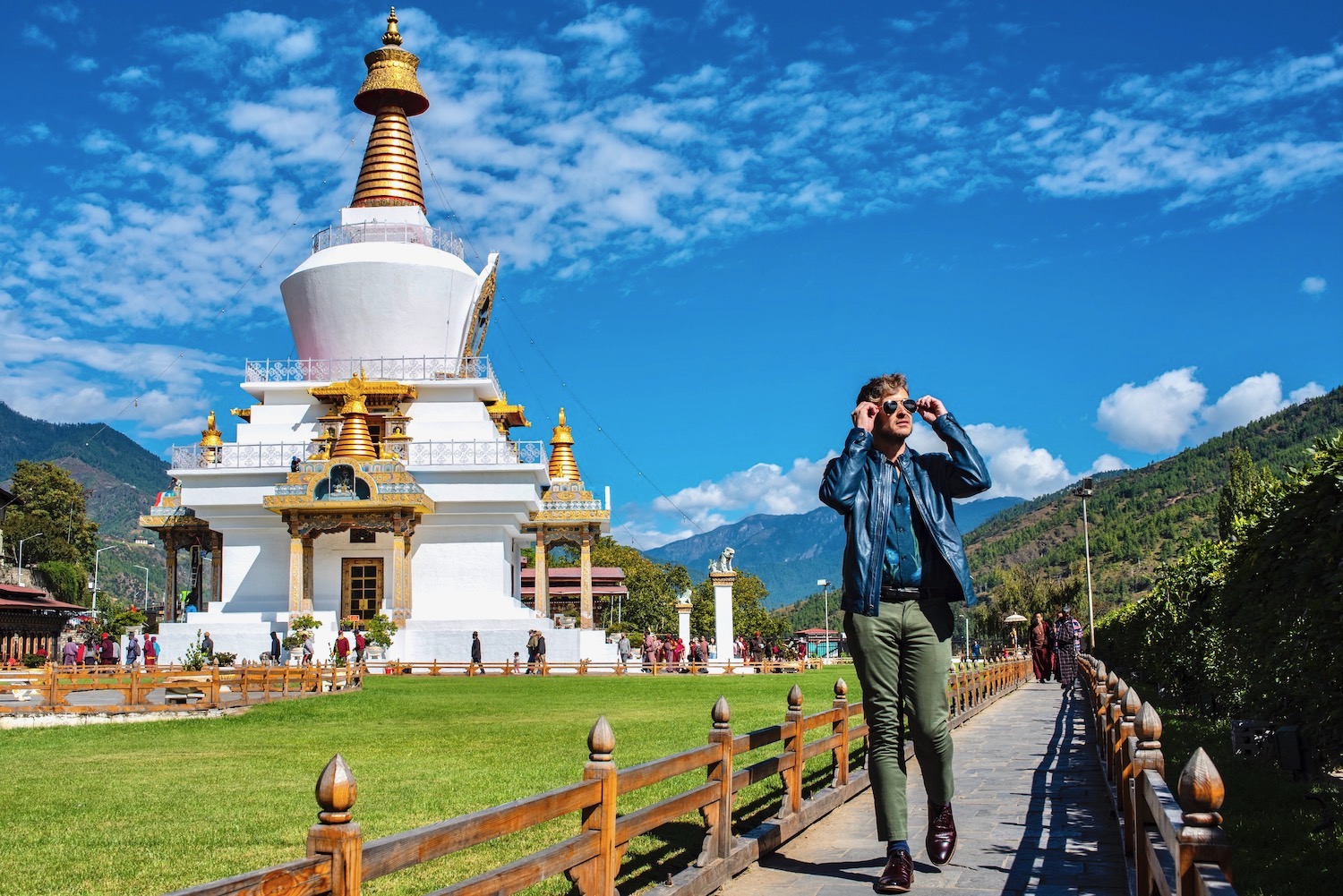
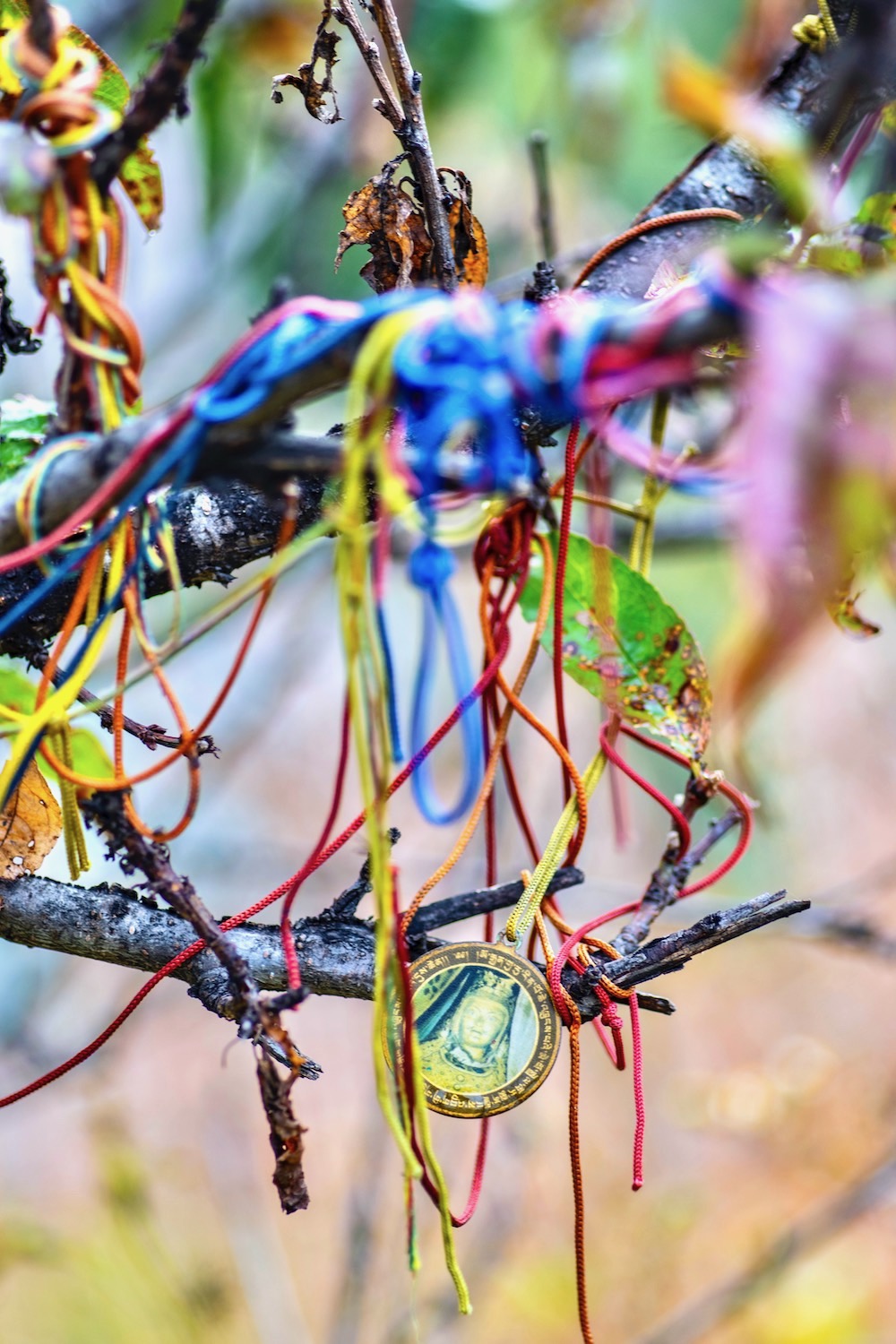
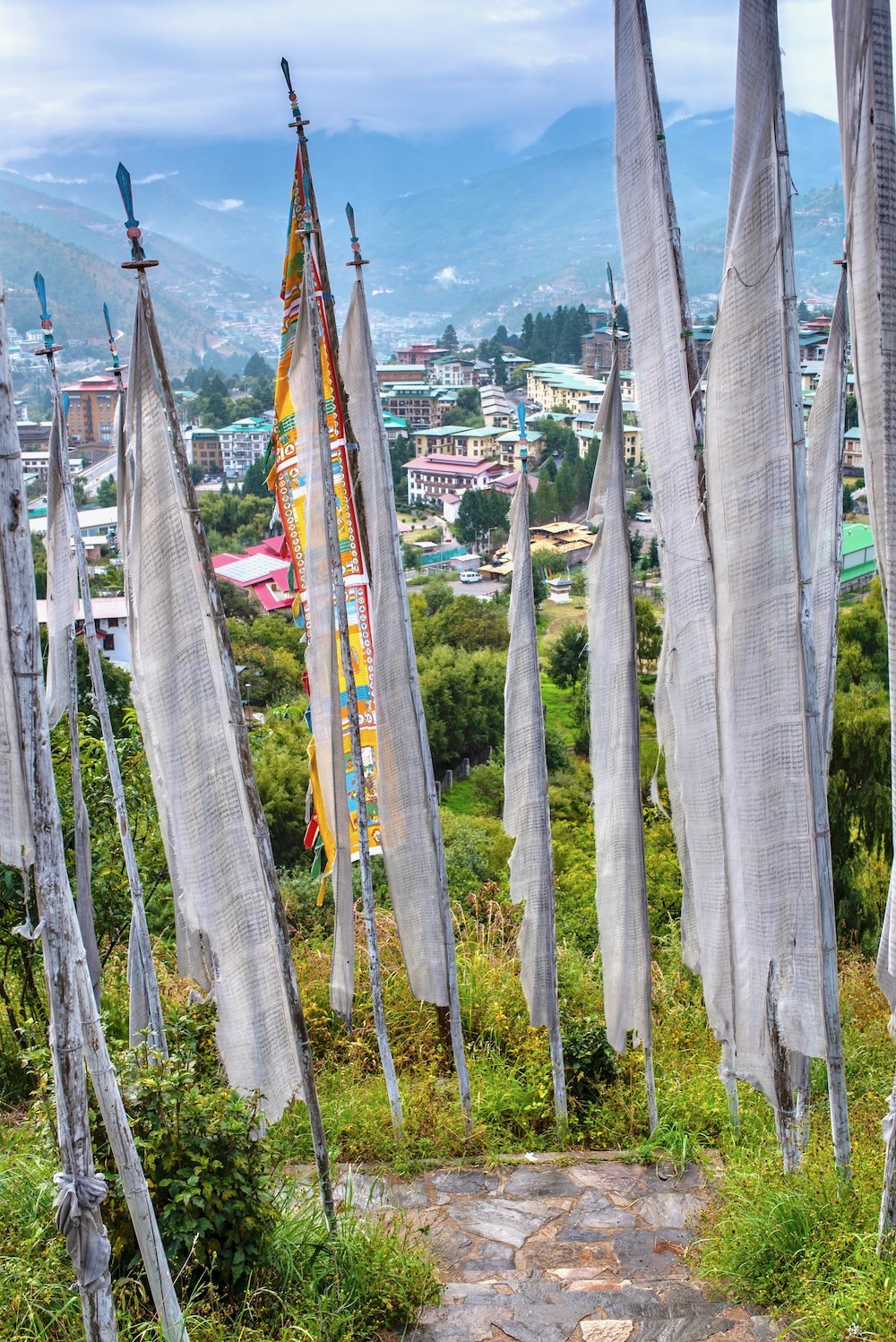
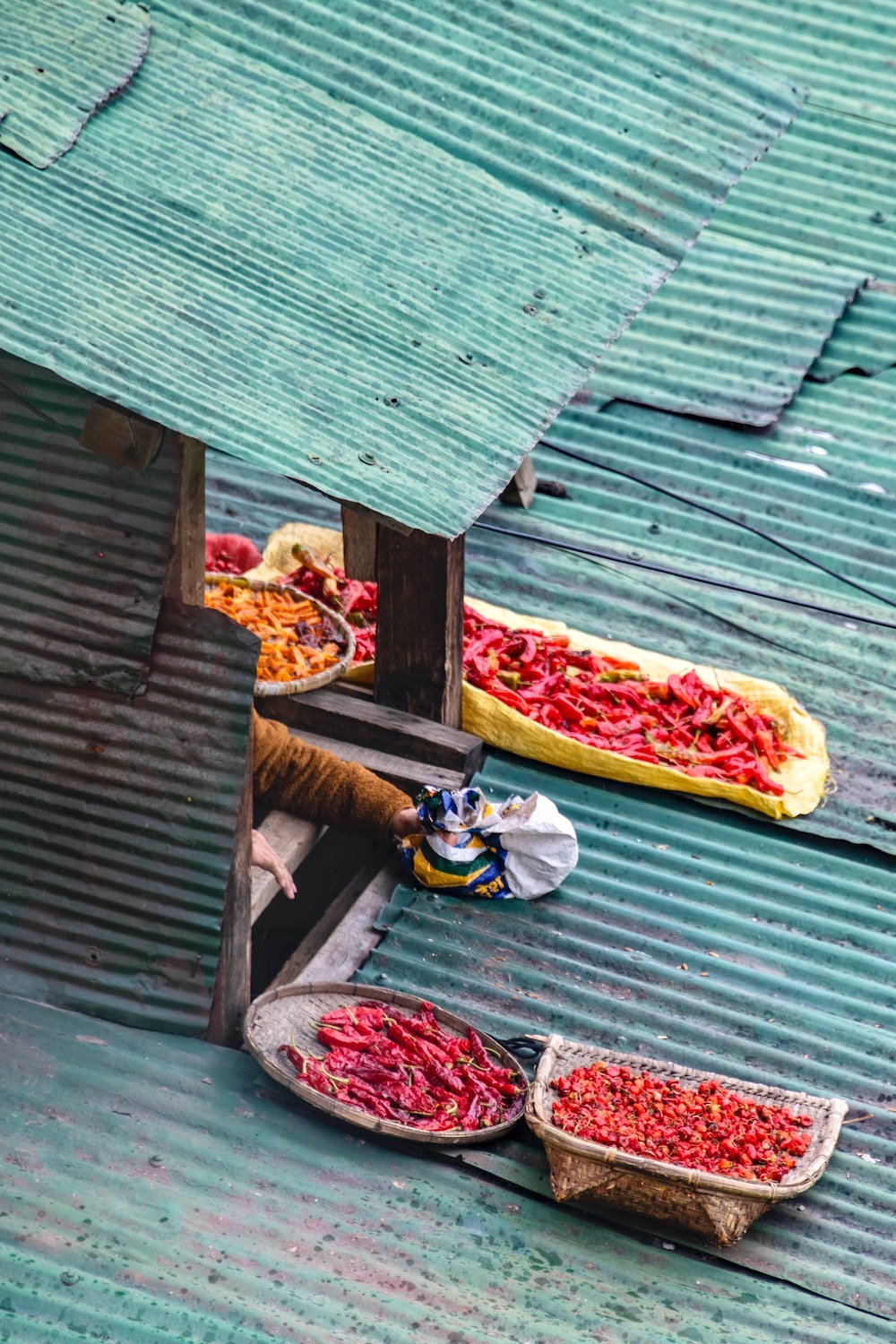
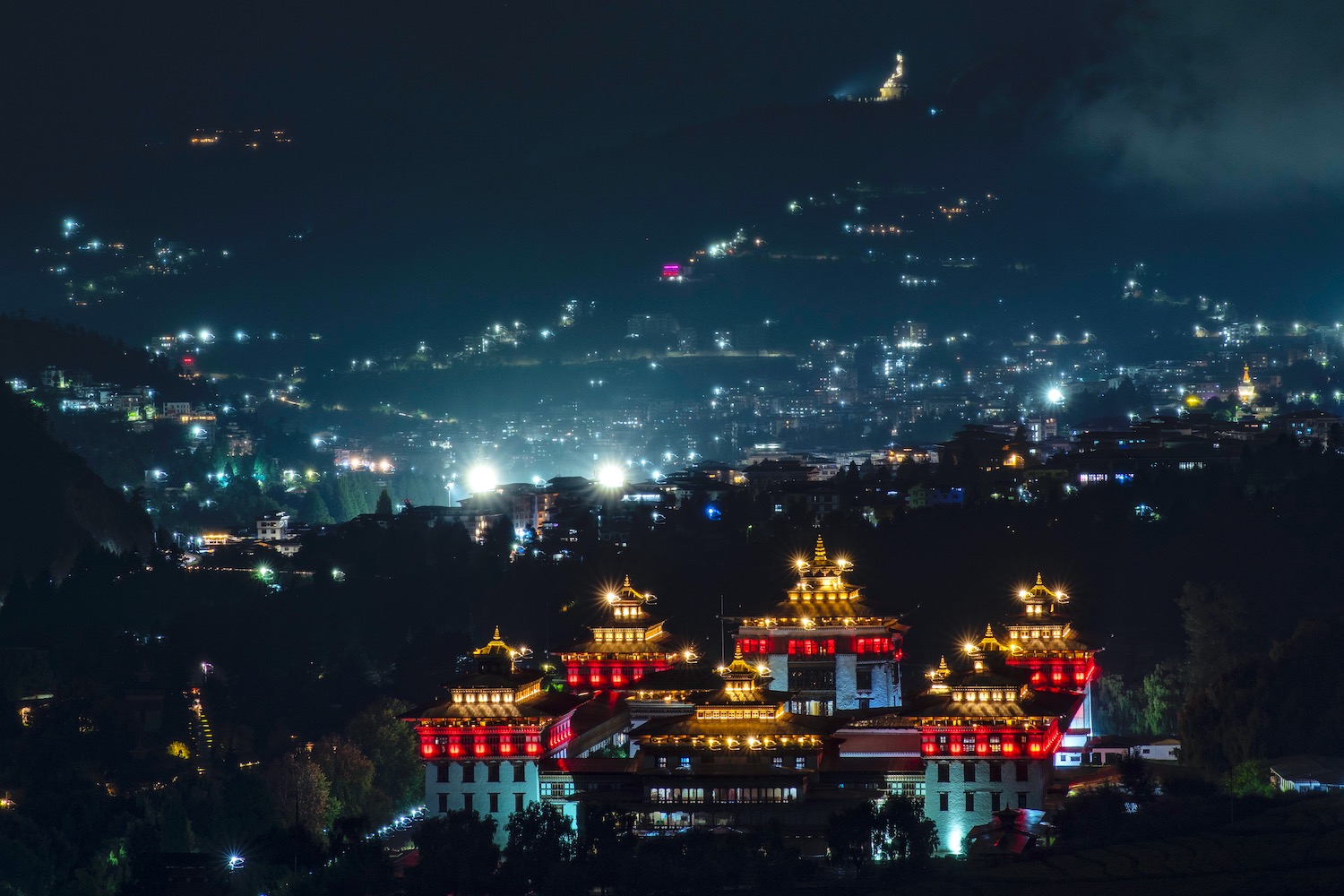
I would like to tell you that upon taking to the streets shortly after checking in at my Thimphu hotel, any remaining doubts I had about whether I’d made the right decision dissolved like the clouds that had hovered over the valley in the morning disappeared as high noon approached.
But from the moment I stepped onto the grounds of the National Memorial Chorten, a stupa that seemed impressive only because of how ordinary the entire rest of the cityscape around it was, doubts started creeping back in. Maybe Bhutan really is the poor…er, rich man’s Nepal?
This continued at lunch, where my makeshift meal foreshadowed a week where I’d barely eat but manage to avoid any semblance of hunger in spite of this fact.
I’m not sure what killed my appetite more: The abundance of goopy, sour local “cheese” covering every dish brought out (except the spicy pork ribs, which were delicious); or the massive jug of buttermilk the waitress placed on the table to accompany the spread, in spite of my having told her I’m not a dairy fan.
This in turn (and in combination with lingering jet lag from a week earlier) left me demotivated the entire afternoon. These things, and the fact that the clouds set back in far earlier than I expected they would.
I would not only nix my decision to trek up to a viewpoint and replicate an amazing picture I’d seen on the official Bhutan tourism page; I fell asleep hours before sunset and spent most of the night as awake and restless as I’d been in Bangkok, not only because of my decision to sleep as early as I did, but because no less than a dozen stray dogs spent the entire night barking without reprieve.
And yet I dreamed while I was awake: Of flying back to Bangkok the next morning, and pretending this trip had never happened.
Had it not been for my decision to head out before dawn the next morning (and visit Changangkha Lhakhang, which had been on my agenda for the previous afternoon, but was actually better in the morning when almost no one was there), I might’ve followed through in the real world with the plans I’d made while trapped inside my own head.
As always, however, my decision to get out of my head—and to create something in spite of my destructive thoughts—saved me.
Returning to the hotel for an unsurprisingly disappointing breakfast, I noticed that at least a dozen seeds from one of the marigold bushes I traipsed through while taking timed self portraits at the temple were stuck in my shoelaces.
I also noticed that the coffee the waitress had served me was instant.
“Of course,” she confirmed, somewhat apologetically, when I asked her if I could order an americano. “Though you’ll have to pay.”
I nodded—I would’ve paid simply not to drink the bitter beverage in front of me.
“Do you want an iced one or a hot one?” She asked. “Our ice cubes are made from filtered water,” she continued, reminding me of the fact that in spite of its popularity among well-heeled foreign travelers, Bhutan was still a poor country for locals. “You don’t need to worry about getting sick.”
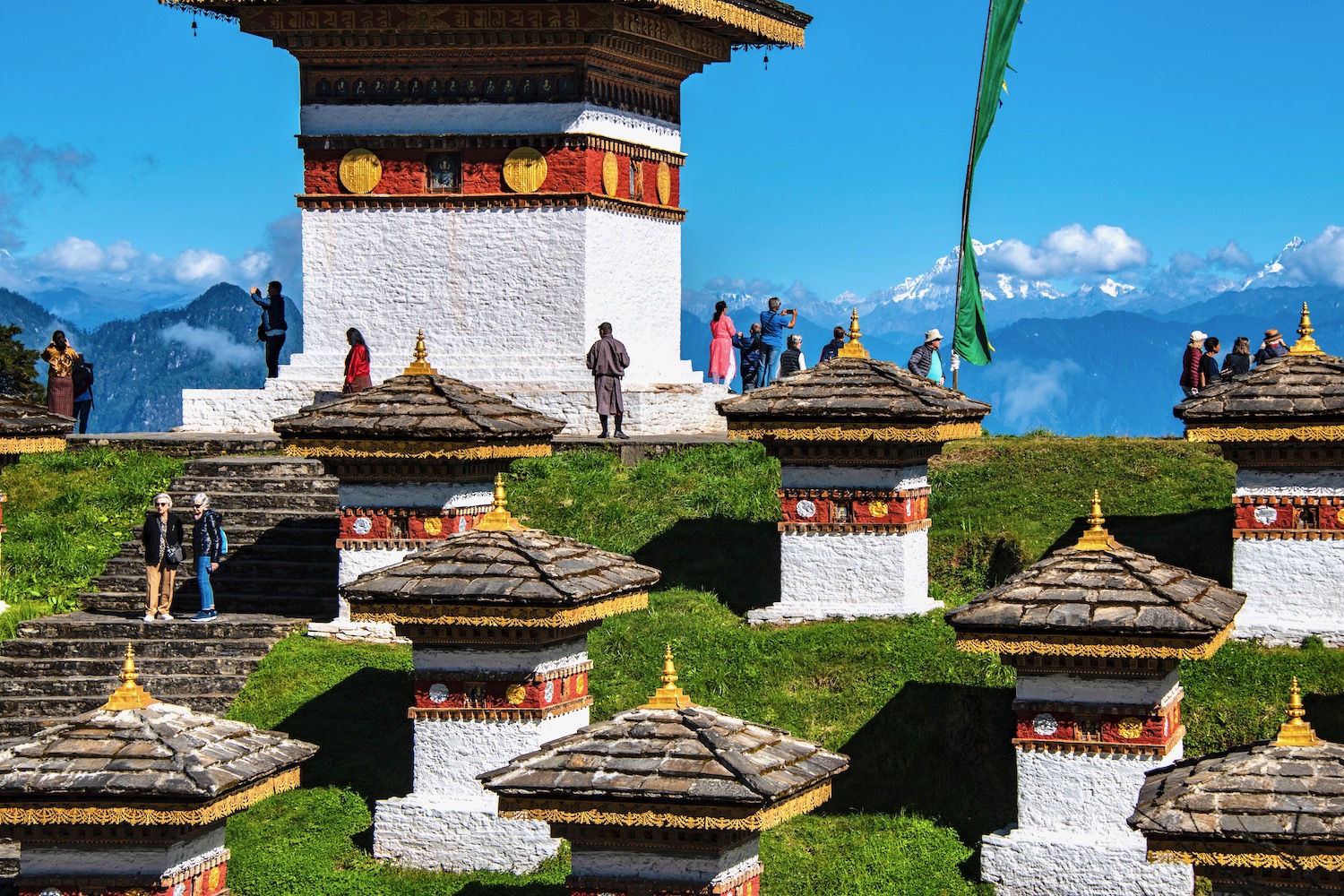
Now, I know what you must be thinking. What an entitled brat I am! How abhorrent to have the once-in-a-lifetime opportunity to visit a place like Bhutan (most people never get such an opportunity at all), and spend the entirety of your first day in the country denigrating it. How repellent! How detached from reality.
I agree with you, trust me. I’ll be touching more on this topic later, though I hope by that point I’m less in the mood to rationalize or even explain, and more in a space of emotional ownership.
For now, however, I don’t want to break up the narrative. Which now sees us at breakfast on my third morning in Bhutan (my second, if you don’t count the morning I landed), waiting on the taxi driver with whom I’d negotiated a ride onward to Punakha.
(Note to anyone reading this who plans to travel independently in Bhutan, now that a tour is no longer required: Negotiate directly with taxi drivers—don’t even bother involving your hotel!).
The breakfast was wretched, which wasn’t a surprise. It had been awful the day before, in a way that called back to my first awful lunch. I say this not so much to complain as I do to chronicle it as fact.
On the other hand, as I stood on the stoop of the hotel looking out at Thimphu’s industrial cityscape, I felt content in how reinvigorated I’d become in a matter of hours.
While the previous morning’s journey up to the Buddha Dordenma had left me cold—the white sky above me as I traipsed around the statue hadn’t exactly flattered its golden skin—my decision to trek to the Dechen Phodrang Monastery viewpoint in spite of the lingering rain proved nothing short of inspirational.
I got the shot I wanted, and a profound sense of accomplishment from having trekked several miles (beneath drizzle no less).
And yet I was back in my own head , which means that I was effectively unconscious as I entered the taxi, and for most of the journey up to Dochula Pass. The only thing I remember is the driver admonishing me for putting on a seatbelt, just as the one who picked me up at the airport 48 hours earlier had done.
GREEN BHUTAN, CLEAN BHUTAN, another stone sign along the sign of the road declare, shaking me awake. Which reminded me of how rude I’d been.
“What is your name?” I asked my driver, who’d indulged my strange mood, without pushing me in the least about it.
“Turkey,” seemed to say, though he pronounced the “T” more like it was a “D,” and the “key” like it were “kay.” “And you sir?”
“Robert,” I said, explaining that he didn’t have to call me sir, before we quickly chatted to one another about our families and careers. His—family, this is—was far over the farthest mountain ridge.
“About a day’s drive,” he specified, though he noted it might be hard for me to imagine since even the mountains close to the monuments of Dochu-la were completely obscured amid a sea of clouds, not unlike the one I’d seen when landing what seemed like an eternity ago.
Needless to say, we didn’t spend long at the precipice, where it was as cold as it had been cloudy.
DON’T HURT ANIMALS, the next monolith warned. YOU WILL BE REPAID IN GOOD KARMA.
In smaller letters in sentence case, which I hadn’t seen on any other such sign, it specified that in Bhutan, it was actually a crime both to injure an animal, or to abstain from helping an injured animal regardless of who had harmed it.
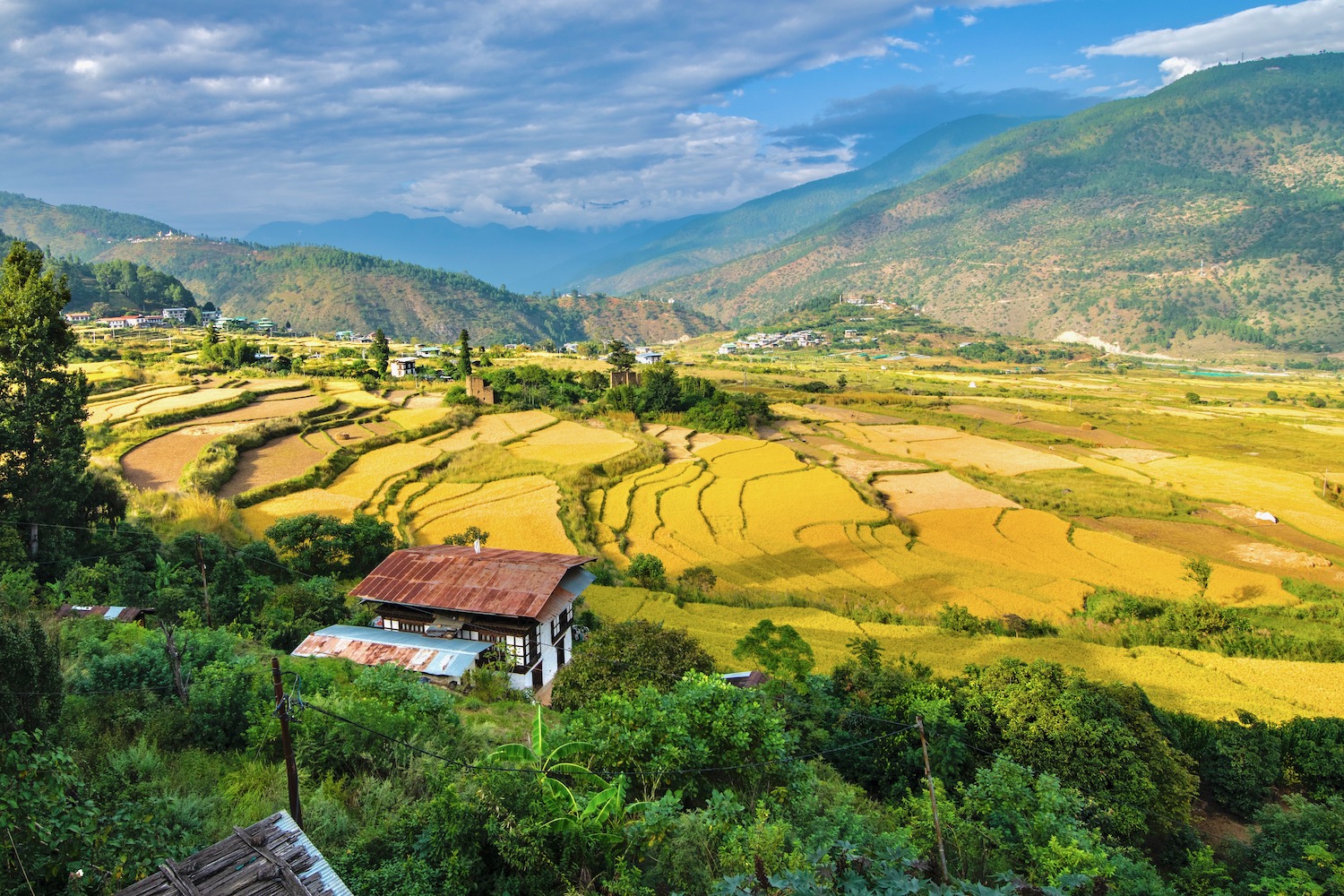
Past that point, I can’t imagine we were in silence that much longer—the entire drive was less than two hours; it had already been more than 60 minutes.
Yet it felt like an eternity; the landscape changed so quickly as we descended from the pass. In a matter of minutes, it seemed, we’d gone from pines and (I’m told) snow-capped peaks in the distance, to chartreuse rice fields ready for harvest and gleaming, green banana trees all along their periphery.
Banana trees and cactuses with ripe prickly pears on them, and then a river with water so milky and blue-green that only salts from a glacier that melted thousands of feet above could’ve colored it that way.
“Many tourists raft in this river,” Dargay explained, having in the time that passed turned on the air conditioner full-blast, and loosened his traditional gho more than would probably be permissible in public. “Do you plan to go rafting?”
I shook my head. “Just the dzong,” I reminded him, referring to Punakha’s famous exemplar of the monastic complexes that constitute the cores of most cities and towns in Bhutan, “and whatever else is around it.”
The time inside the dzong, which is the only type of building where you still need to have a guide in Bhutan’s post-guide era, passed quickly.
And not just because I ended up having to piggyback with a random group of middle-aged Scottish tourists, themselves latched onto an elderly Indian woman whose own guide probably didn’t having chaperoning six people on that day’s bingo card.
Instead, in concert with the requirement to have a guide was the sense of authoritarianism I feared might be present all over Bhutan when I’d been trying to convince myself not to come. No photos were allowed inside any building; even in the courtyards I felt like I had to be discreet.
I almost wanted my time within the walls to end, in spite of how captivated I felt.
It was only as I hurried down the steps after my visit that a piece of advice my father had given me half a decade earlier made itself available to me.
:Don’t wish your life away,” he’d warned me ahead of my 34th birthday, without provided any context or clarification. I guess he knew a moment like this one was waiting on my horizon.
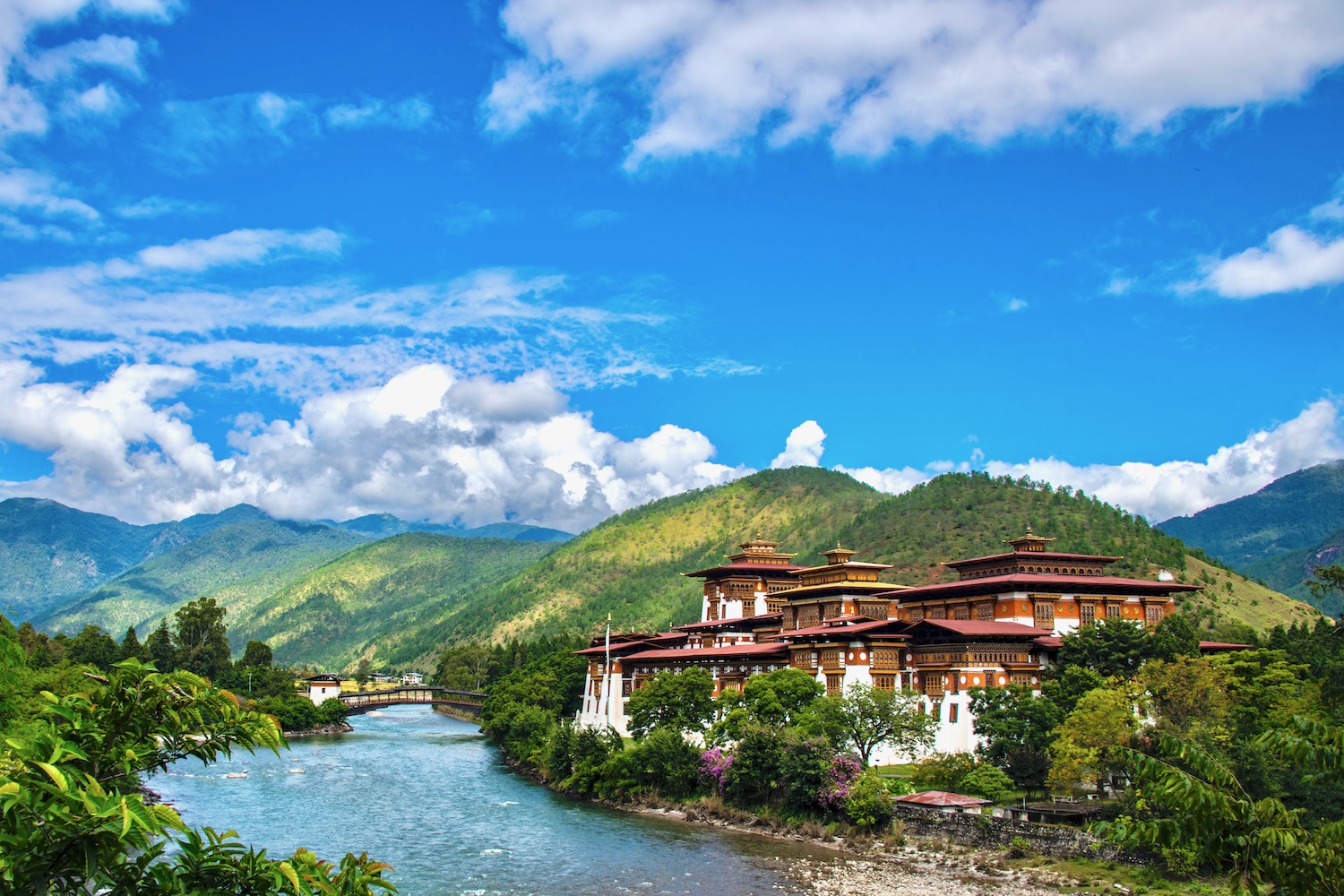
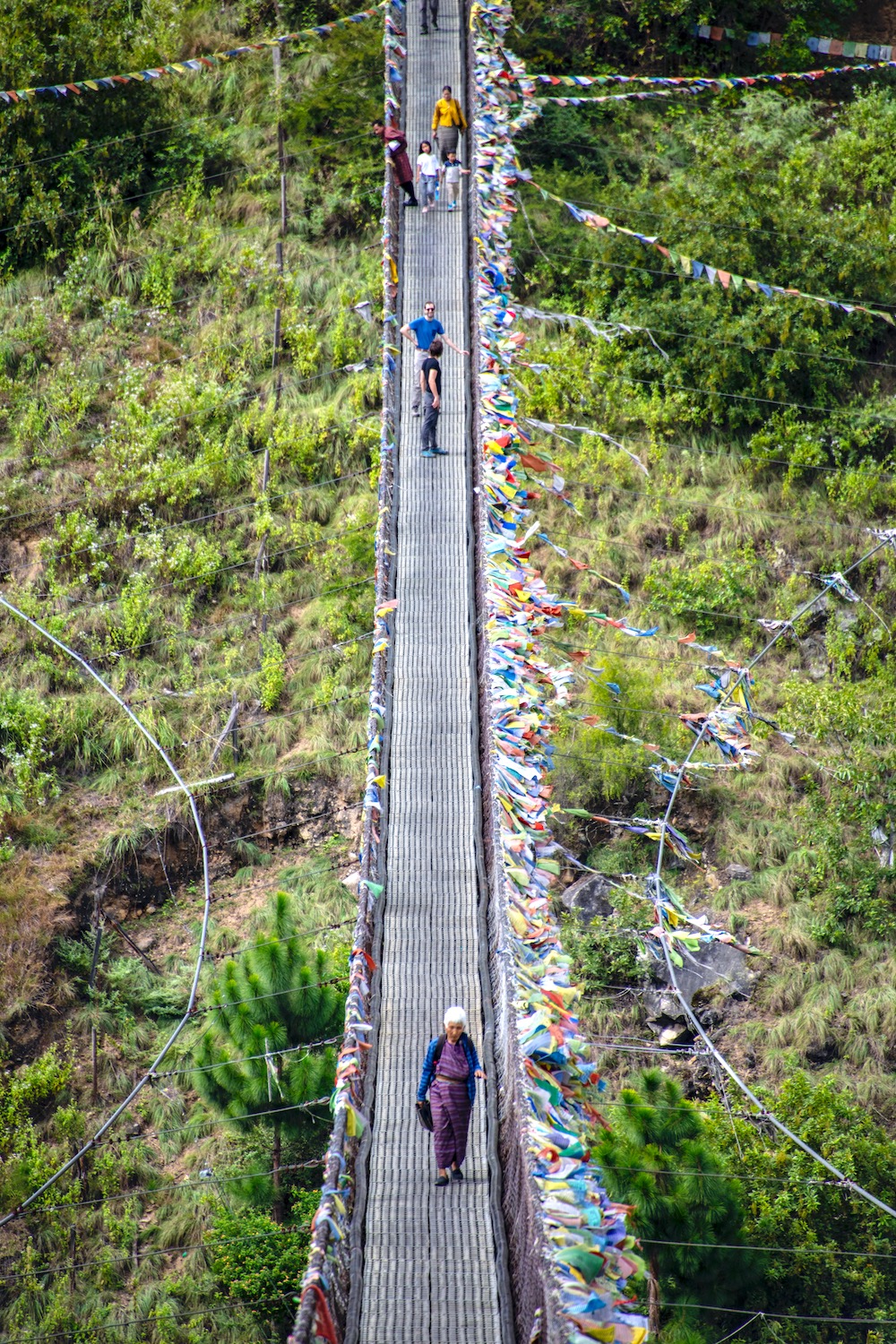
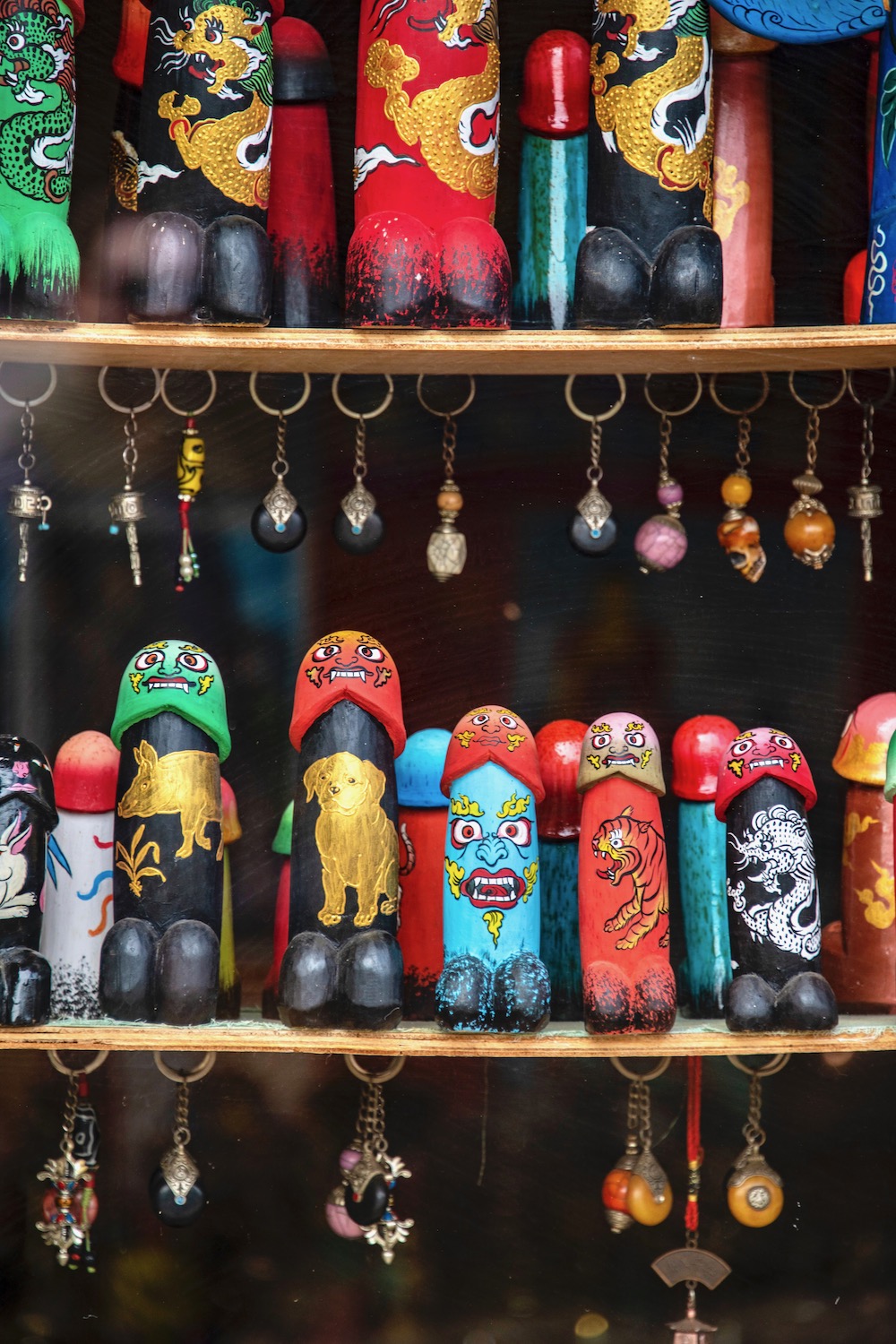
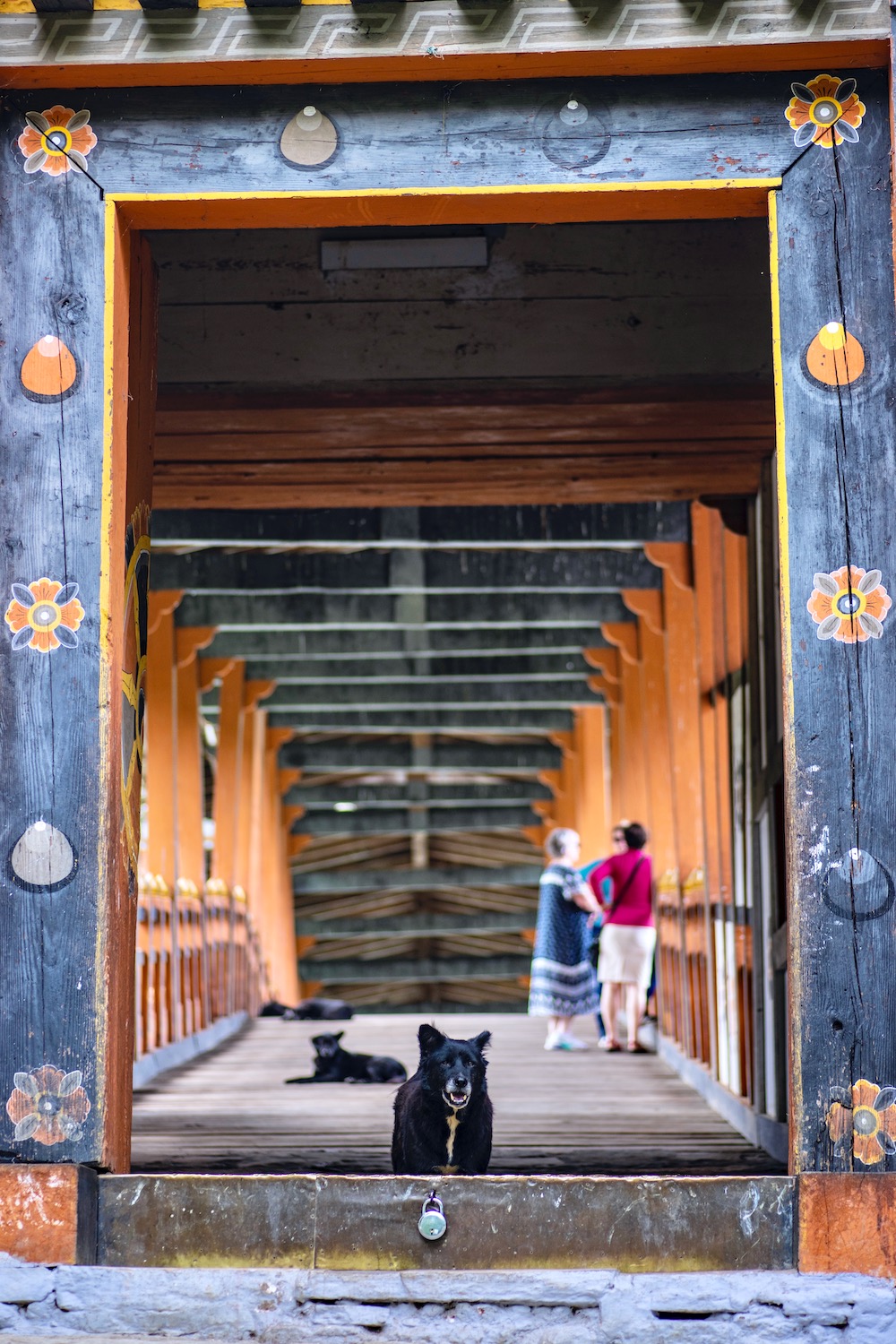
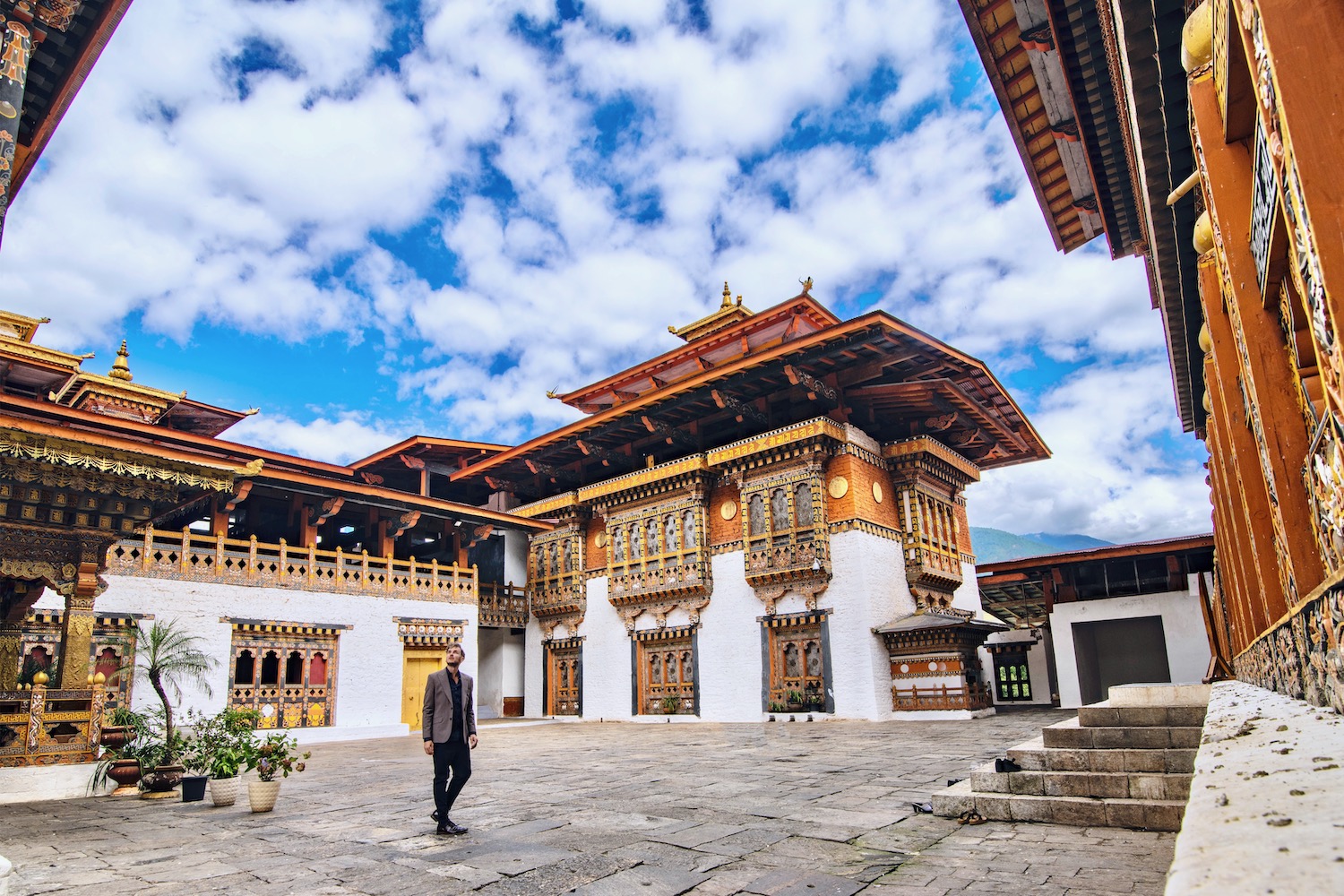
The remainder of my only day in Punakha ended up being mixed. On one hand, the bridge the driver spoke about (which reminded me of ones in Nepal, albeit neither as high nor as rickety) had perfectly framed the beautiful valley beneath it.
The phallic paintings at Sopsokha had been at least momentarily entertaining, even though the town’s Chimi Lakhang temple had zero of them, and thus didn’t prove worth the 15 minutes it had taken to trek up to it.
On the other hand, I arrived to the beautiful hotel I’d booked online in advance to discover the staff (who were lovely) had no idea I was coming. An Indian scammer had created a spoof listing it seemed, and stolen my money without ever intending that I might get a place to sleep in exchange for it.
The hotel staff were lovely, but so was Dargay. He not only waited around with me until the lovely staff found an alternative arrangement for me; he offered (for a price, of course) not only to stay the night and take me back to Paro the next day, but also to facilitate my sightseeing there as well.
LITTERING IS AN OFFENCE, the first sign as I saw as we ascended back up into the mountains (which today, thankfully, were entirely devoid of clouds), Dargay swerving to avoid a small herd of cows who’d decided to lie down in the middle of the road just in front of a stupa with a small waterfall flowing through it. The sign about animals and karma would’ve been more appropriate.
Arriving back at Dochu-la, where Dargay had been happy (or at least neutral) about letting me stop 10-15 minutes to get pictures of the place with mountain peaks in the crystalline sky behind it this time, I couldn’t help but imagine myself there again in the spring, when fuchsia rhododendrons might frame the scene, rather than the dusty marigolds before me now, a month into autumn.

It was remarkable: In less than 48 hours, I’d gone from wanting to leave Bhutan and pretending I’d never been there, to fantasizing about a return trip (at a quasi-specific point in the future no less).
Passing through Thimphu briefly on our way, we rounded one of the capital’s famous roundabouts, which reminded me for the first time during our trip of the fact that Bhutan is the only country in the world without a single traffic light.
I would never have thought to notice this on my own, of course; I eavesdropped it from an elderly tourist who was on an expensive guided tour, apparently oblivious to the fact that tours are no longer required.
Entering the main drag—the only drag, really—of Paro, its own dzong towering in the distance, it dawned on me just how much my decision to have begun my trip in Thimphu colored the experience in an unflattering light to begin with. Paro simply had a better vibe, though some of that could’ve been just how bright the sun remained.
Or how, after dropping me at my hotel to make sure I hadn’t get scammed again, Dargay whisked me to the trailhead for the Tiger’s Nest, which was so small high up on its perch that I might’ve missed it, had he not alerted me to its presence.
The scene that ended up awaiting me just past the trailhead was exactly as I expectedly. Mostly elderly (and mostly white) tourists, mostly with their expensive tour guides, dressed as if they had just climbed Everest, or were preparing to do so.
The only thing more jarring than their earnest facial expressions, and the extent to which they looked like they’d just walked out of an REI store, was the disdain with which they seemed to regard my leather jacket, my slim slacks and my Nike sneakers, which were definitely not hiking boots.
I made it to the cafe halfway up the mountain, of course, in half the time the ticket attendant (who pushed me as to why I didn’t have a guide, but let me onto the trail with almost no resistance in spite of it) told me it would take.
Which was thankful: I’d forgotten to take a bottle of water with me; I was already parched the moment I exited Dargay’s car.
I rushed up the mountainside primarily due to thirst, you might say, although I was of course excited about the Tiger’s Nest. However, it was only after it begun coming into closer view following my stop at the cafe that I realized just how poorly pictures I’d previously seen of it had done it justice.
(I hope the ones I post below don’t end up leaving you feeling the same way.)
It’s difficult, to be sure, to pinpoint was what more impressive or memorable. Was it the staircases that snaked around the chasms between the various lobes of the dzong, and wondering how many people had died in their construction, which had clearly been painstaking?
Was it how right a choice my decision to hike in the afternoon (rather than the morning) had been? The light, you see, was nothing short of perfect.
Or maybe it was the fact that one of the two police officers guarding the entrance ended up personally escorting me on a tour through the complex, even though he’d previously threatened me with a fine for coming without one (he denied being aware of Bhutan’s new national policy) and suggested I needed to wait, perhaps indefinitely, for someone else’s guide to arrive.
No, I think it was actually being down beneath the bowels of the edifice, in a cave that was likely only one little earthquake away from falling off the cliff face, and imagining the daze the long-dead Bhutanese monk who consecrated this place must’ve been in when he convinced himself a tiger had somehow made its way up there with him.
At least I hoped it was a myth. If a tiger chased you this high up in the hills, the only card you’d have to play would be jumping to your death.
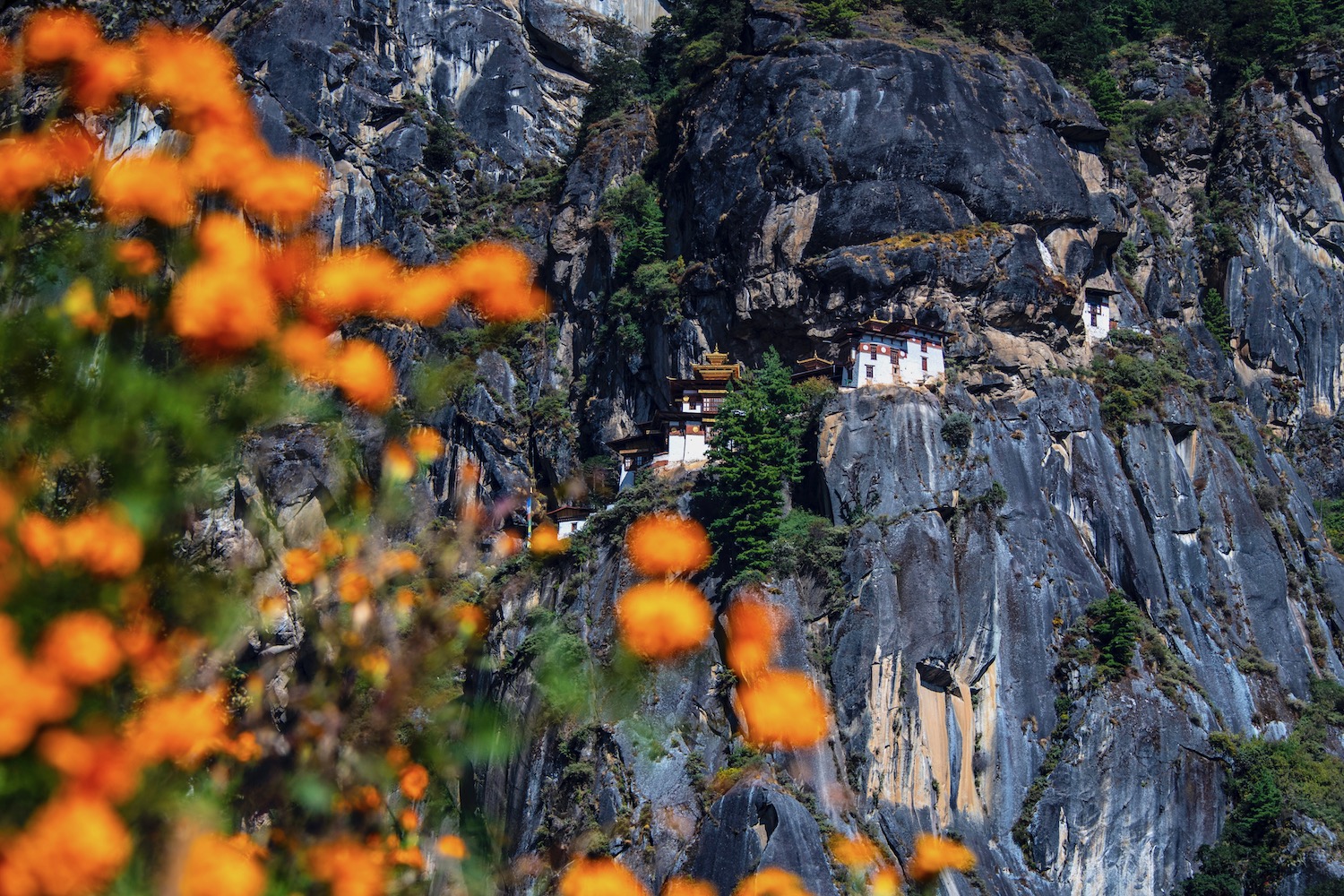
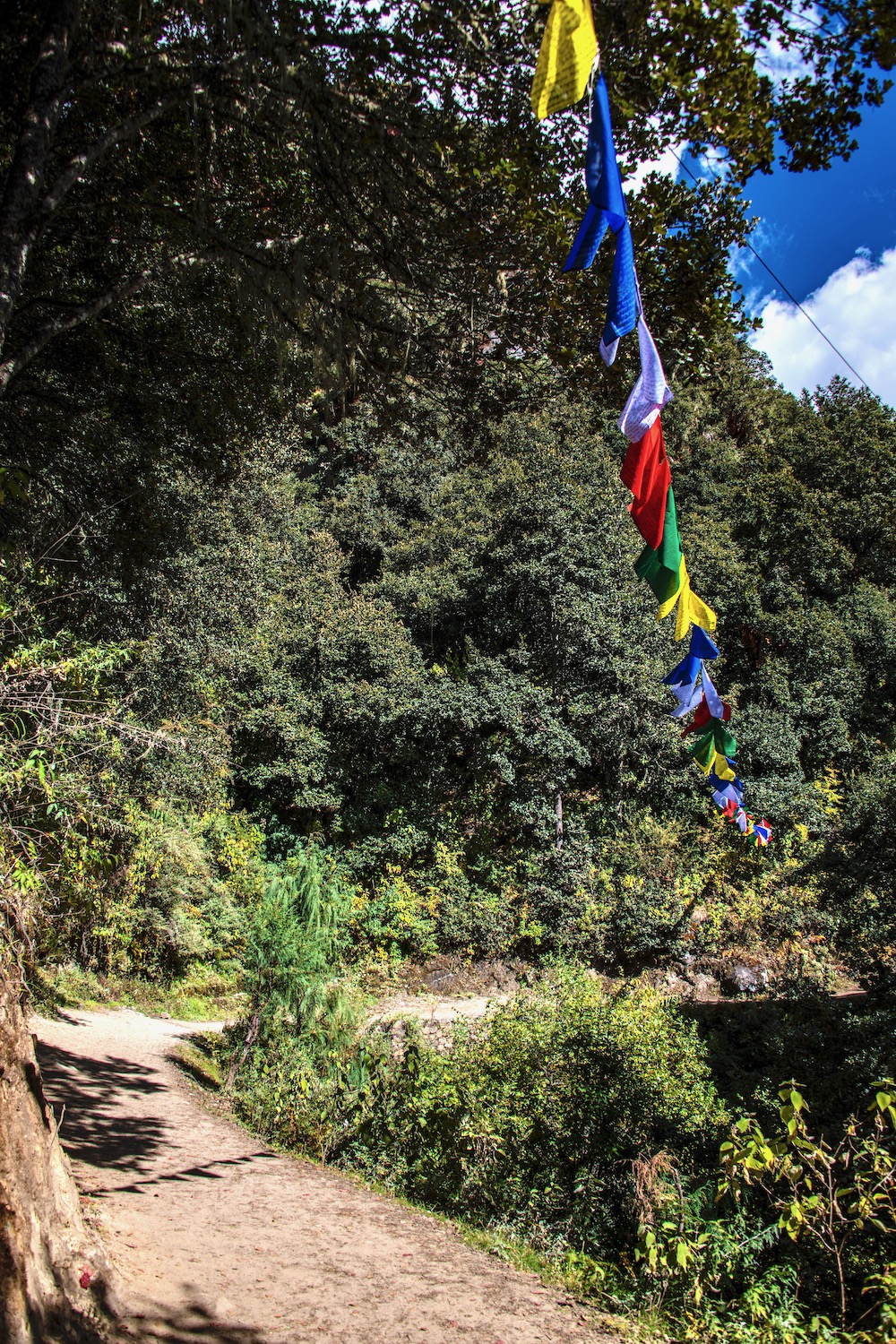
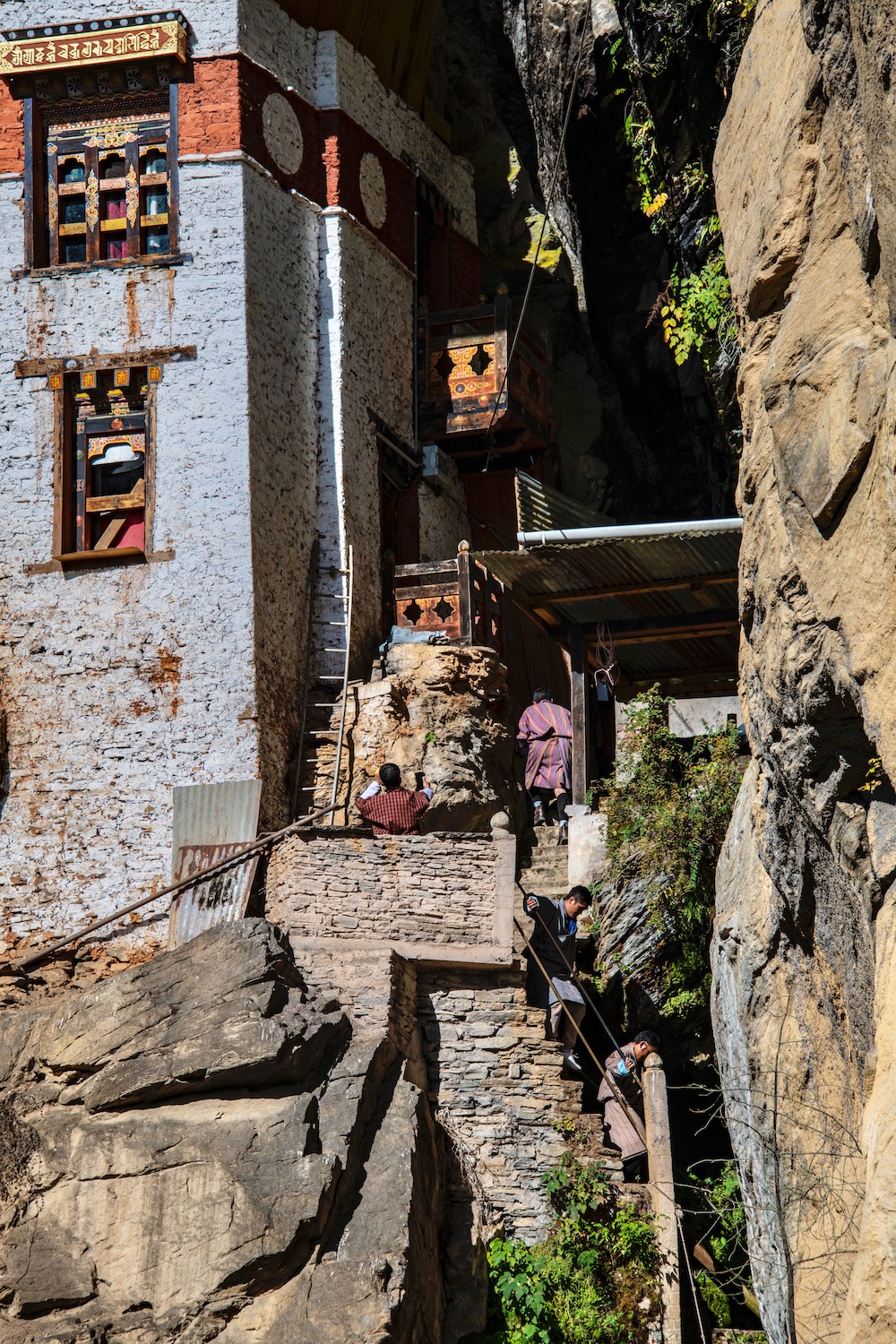
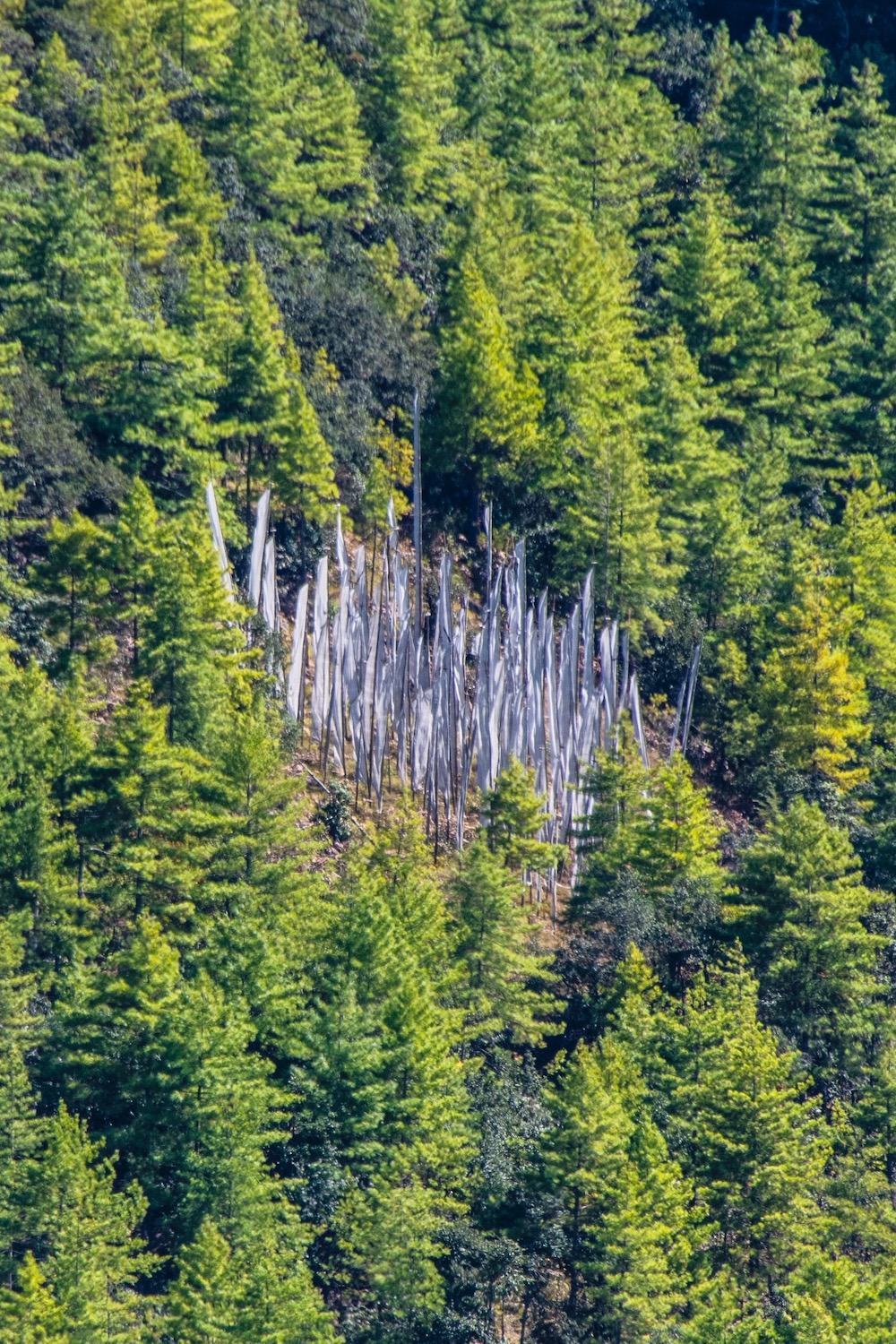
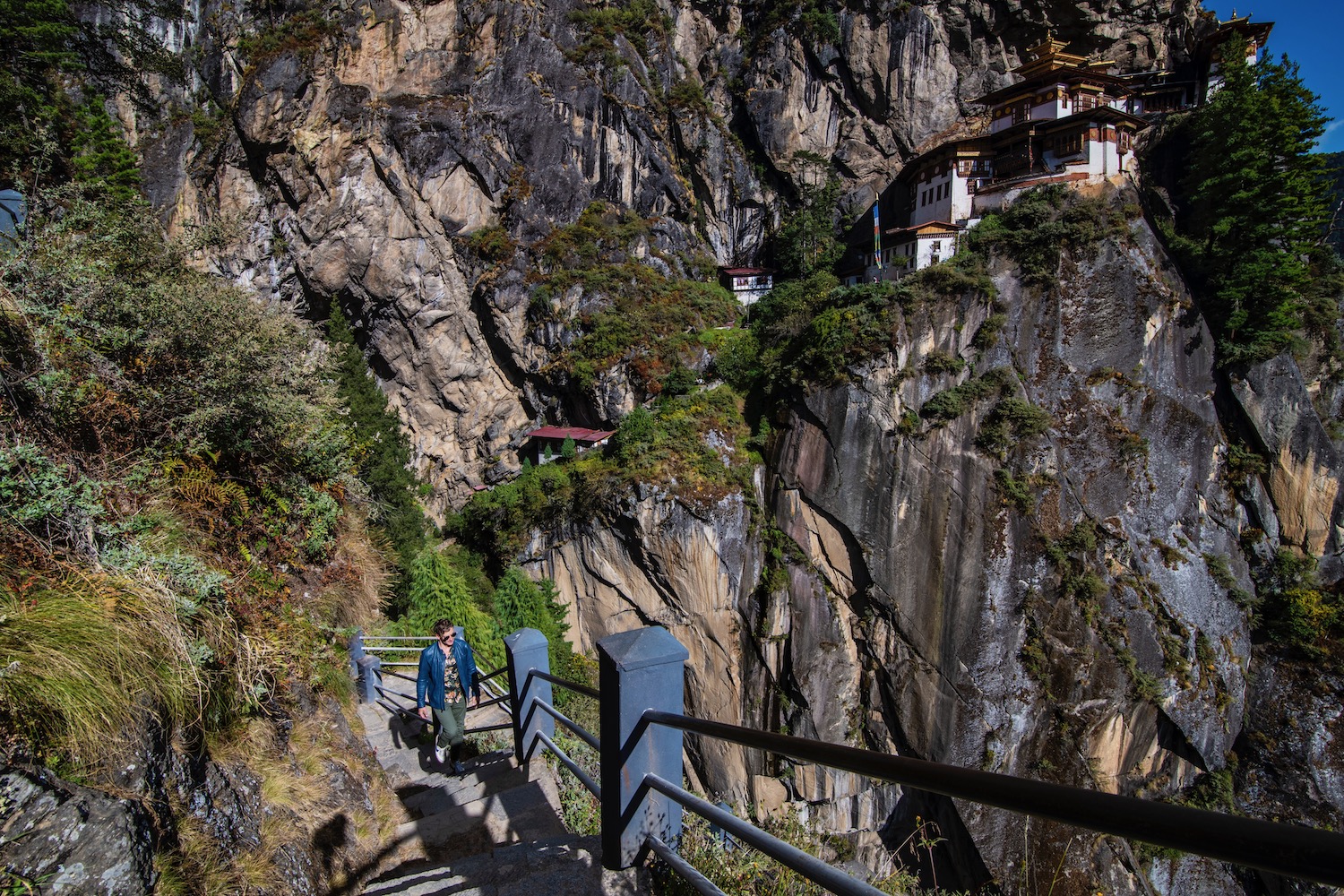
Although I’d raced up and back down the Tiger’s Nest as if I was 25 instead of 39, my body couldn’t lie when I plopped myself down into Dargay’s car. I was absolutely wiped out, to such an extent that I didn’t ask him to stop so I could photograph a local archery match.
Instead, I simply mused to myself. This could be taking place a millennium ago, I concluded, reprising a truth that had also resonated with me half a decade in earlier in Mongolia, the only country I’d visited that was as remotely trapped in time as Bhutan.
In a way, of course, my exhaustion was a blessing; if I hadn’t been so wiped out, I might’ve even cried saying goodbye to Dargay.
Who, in spite of having approached our three-day companionship in a wholly professional way, had nonetheless been almost completely to thank for just how effortless my enjoyment of his country ended up being.
At the same time, waking up the next morning feeling more recharged than I expected, I had been excited about the prospect of exploring central Paro on my own.
Well, at least until I realized the walking route Google Maps plotted for me from Jangtsa Dumtseg Lhakhang to the National Museum of Bhutan would take me through several pieces of private property, a fact I only realized when it was too late to turn around.
I ended up reaching the museum—which, surprise, is housed within a sort of dzong—unscathed. But rather than proceeding inside the building (where photos, not surprisingly, were forbidden) I had an iced americano at the museum cafe, where I enjoy views of Rinpung Dzong (Paro’s formal one) and mostly turboprop planes landing at Paro Airport in the distance.
By the time I got into the museum, where not even cellphones are allowed, I found myself slightly frantic. On one hand, I wanted to use my forced, device-free time to take in fully the astonishing array of artifacts, which were doubtless the most eclectic and impressive collection of Buddhist art I’d ever seen.
From a three-dimensional mandala to seemingly infinite Buddha image paintings and permutations, it was probably the place I saw in Bhutan that I’d most wished I could document in photos, but couldn’t.
(At that, as I hope you can see from my other pictures, is saying something.)
I forced myself to take mental notes of various quotes from the Buddha on the walls, with one in particular standing out.
Like a spider caught in its own web is a person driven by fierce cravings. Break out of the web, and turn away from the world of sensory pleasure and sorrow.
I did feel like a sort of arachnid as I descended the mountain toward Rinpung Dzong, down a “back way” I would only understand was totally off-limits to me as a foreigner after I’d completely traversed the path.
It was a miracle that none of the dozens of Bhutanese I passed on my way through the forbidden zones of the monastery to the actual entrance stopped me, or even looked at me twice.
It was also a metaphor, in a way, for my entire journey through Bhutan: In spite of following a trajectory seemingly defined by missteps, I ended up on the right path in the end.
Returning to my ground level, and then to my hotel to freshen up and pack my things, I started to feel pangs of genuine sadness, and not just because I missed Dargay in that moment.
I’d spent so much of my trip forcing myself not to hate Bhutan, that by the time I realized how much I loved it, it was basically too late to sit in the splendor of that adoration.
Getting into the car of the hotel’s driver, to be sure, I did feel near tears for a split second upon realizing that he wasn’t my best Bhutanese friend, in spite of being very friendly in his own right.
“It isn’t compulsory,” he admonished me as I put my self belt on, though unlike other drivers in Bhutan he continued by stating the obvious out loud. “But it must be a habit for you, right?”
I nodded, gazing out the window for another message on a monolith but not seeing one. No distraction for my mind so that I could rationalize what my heart was feeling, no escape from the reality of my looming departure.
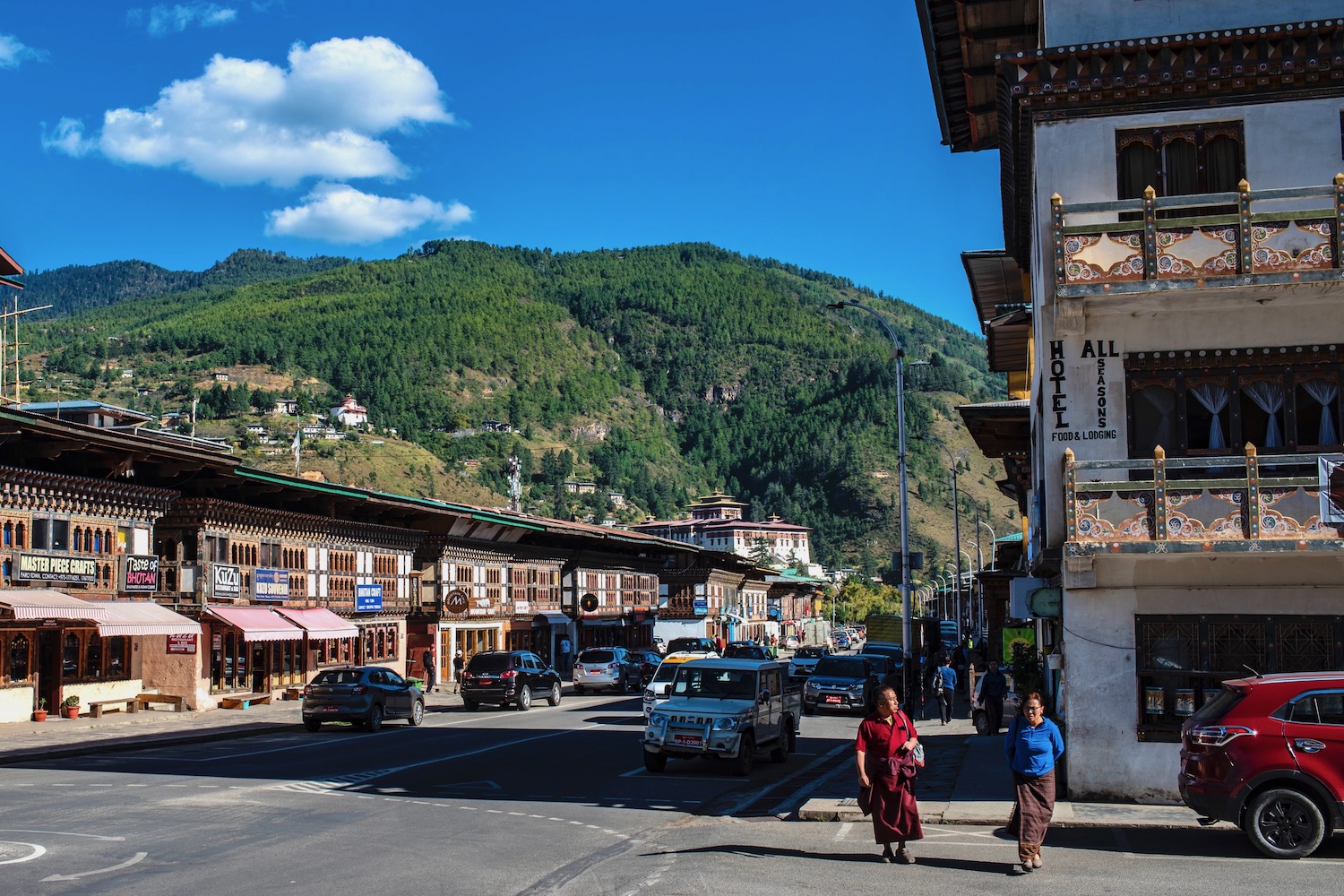
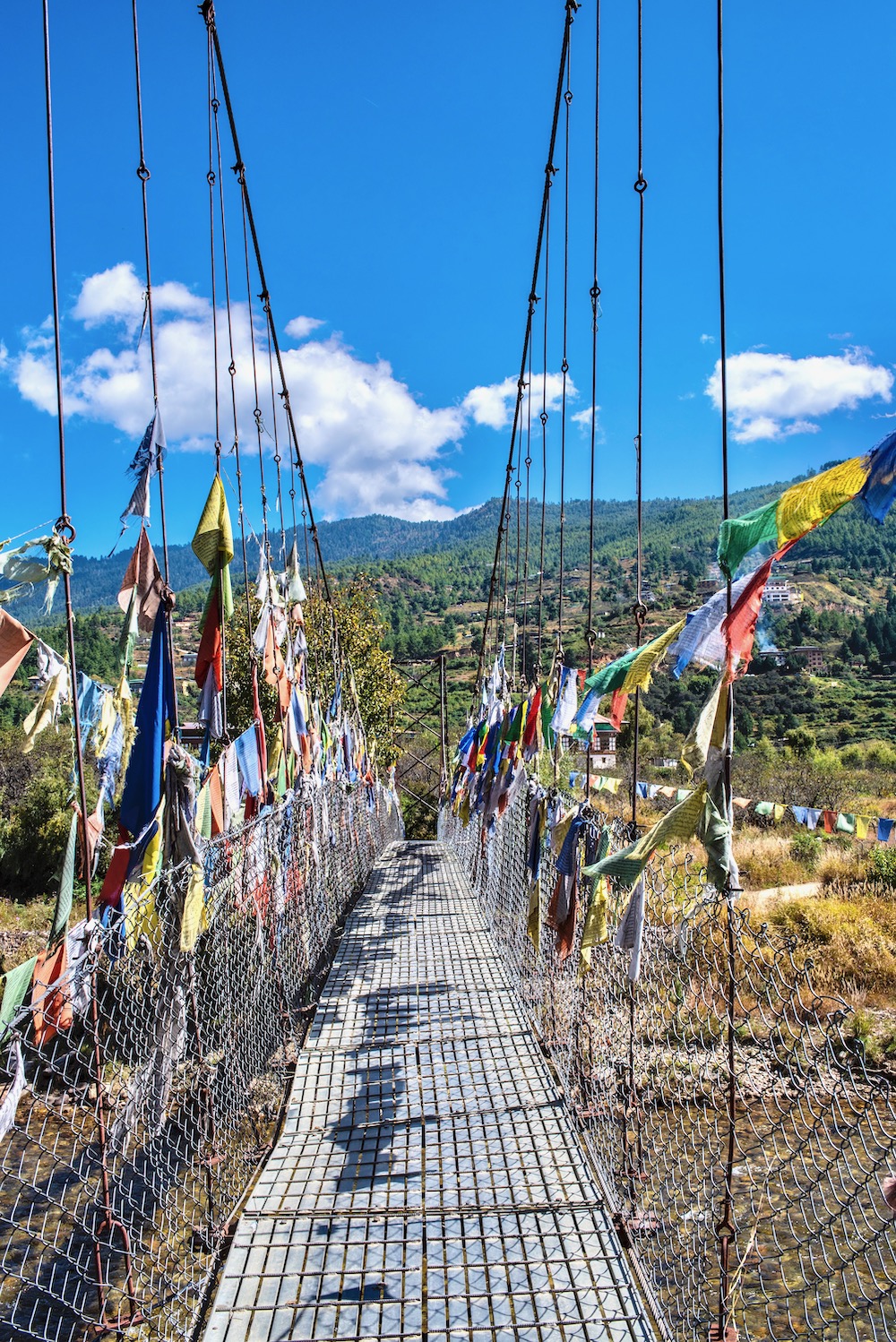
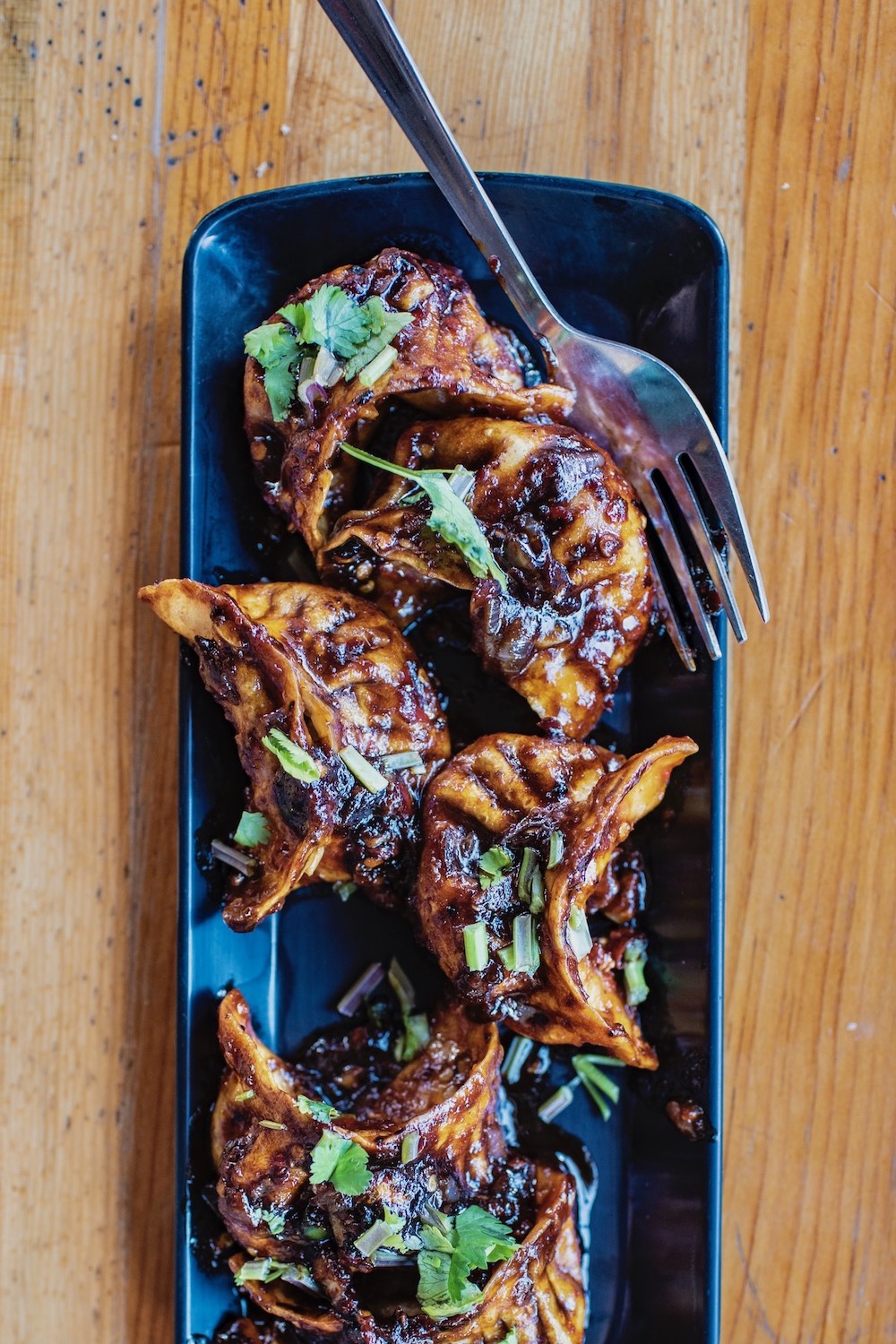
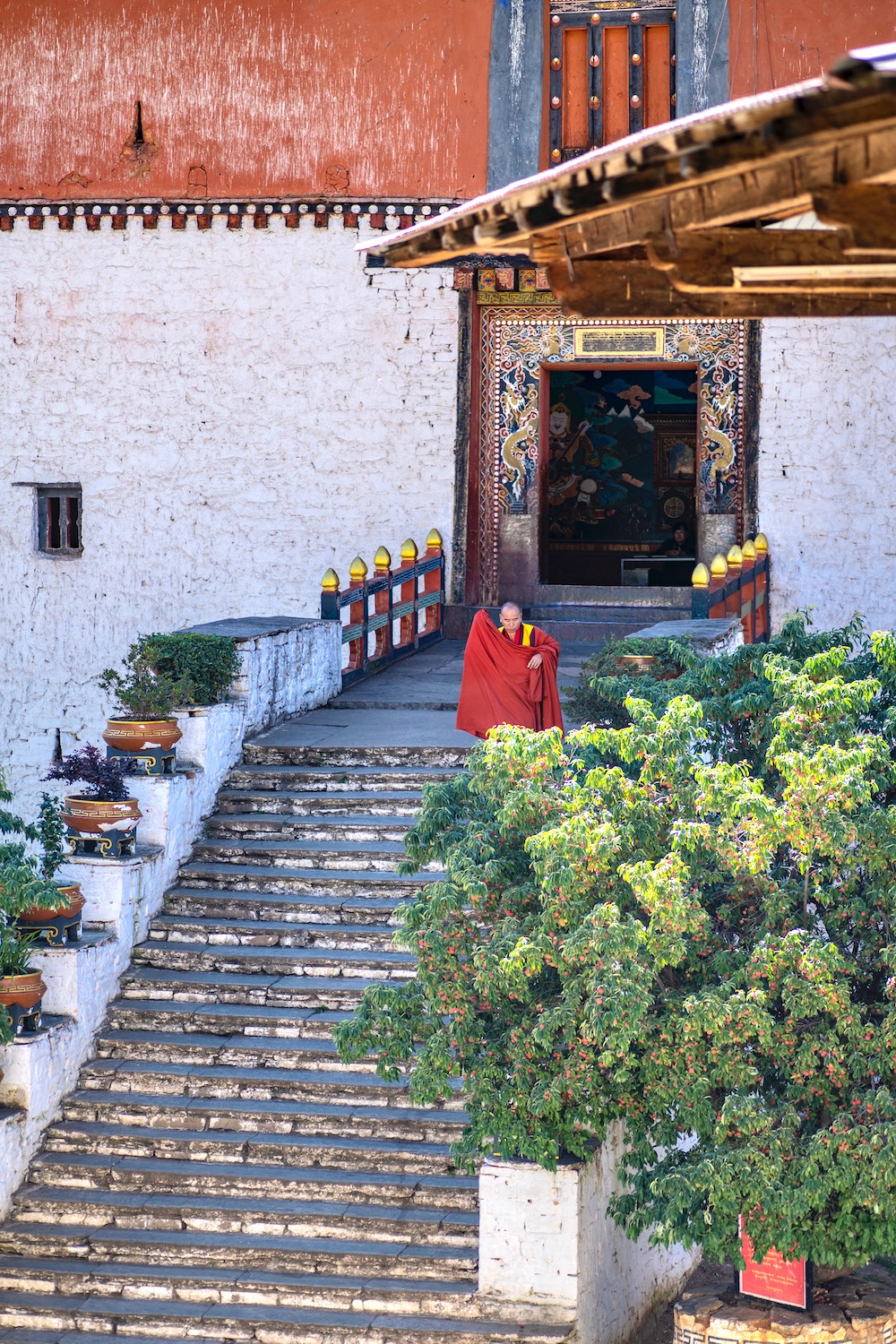
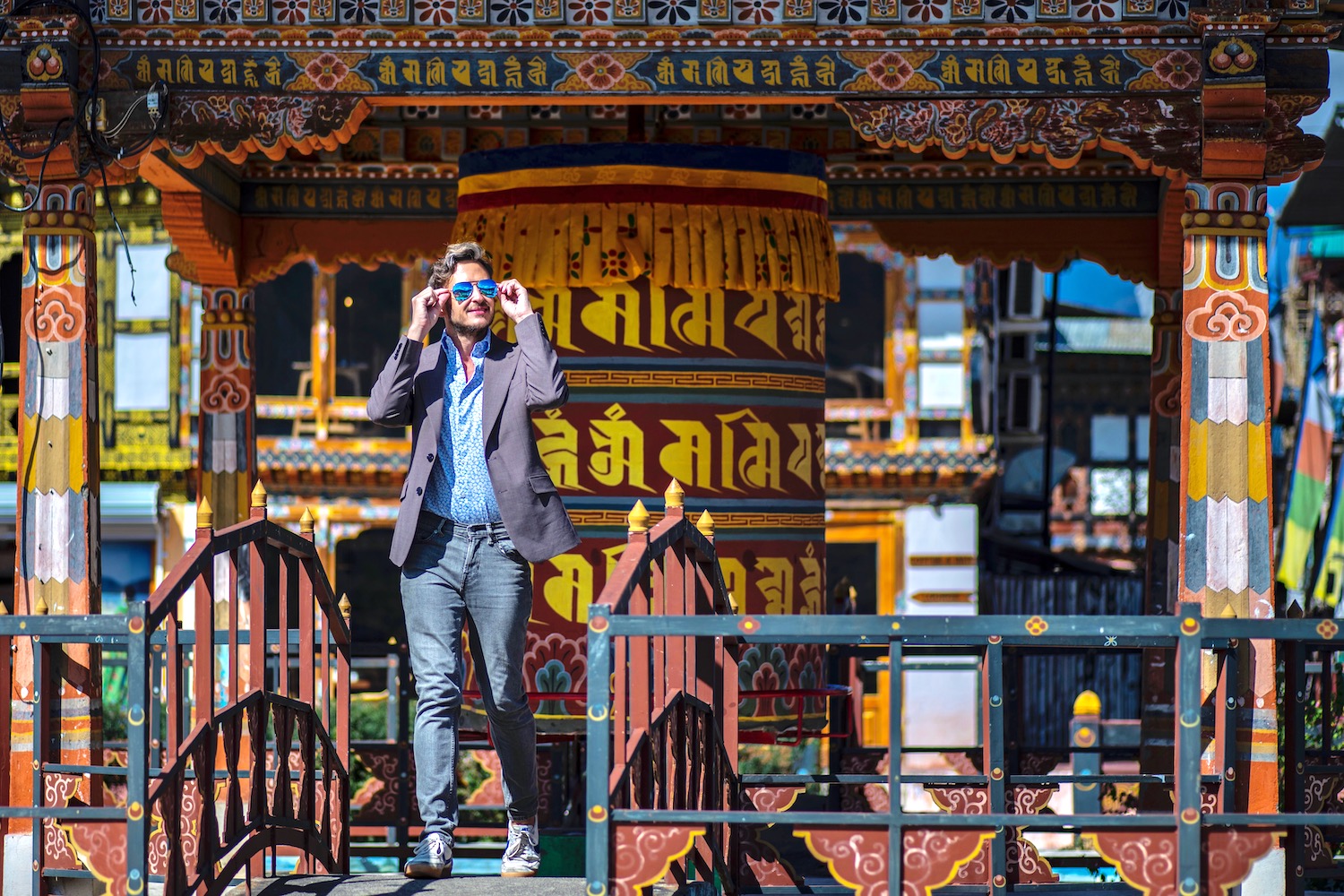
“Sad,” I said, when the immigration officer at Paro Airport asked me how I was on my way out.
Taking my passport gently, he looked me directly in the eye, and cocked his head slightly to the side. “Because you’re leaving Bhutan.”
“I’ll have to come back,” I nodded, feeling a little happier simply for having said these words aloud.
Which is not to say I was on the verge of tears, or even really melancholy. No, I was like the ginkgos, sycamores and maples of late summer in St. Louis: Dull and dehydrated, but not yet resigned to the cold and darkness to come.
And knowing, just as the plane that leaves one place arrives somewhere else, that spring would one day come again.
(With rhododendrons and a snow-capped Himalaya, if I’m back in Bhutan next spring or the one after it.)
As the Drukair A319 made the short taxi on Paro Airport’s only runway, I noticed a man in a gho just on the other side of the barbed-wire fence, with his child, who couldn’t have been much older than I was back in the days when I’d imagined myself on every plane.
The engines roared and we left Bhutan behind, and I wondered whether the child might feel the same way I did back when, wanting desperately to fly off toward any horizon besides the one he knew.
Or if, walking back to their home, the father would feel like I had when I was with Parker, perfectly content to stay forever if that’s what ended up being in the cards.
Break out of the web, I encouraged both silently, whatever that escape might look like for father or for child.



